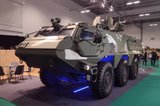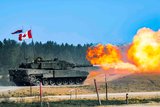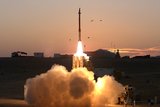Contracts signed as LAND 400 Phase 3 progresses
Contracts have been signed with the two companies selected to progress to the next stage of the Australian Army’s LAND 400 Phase 3, the Australian Department of Defence announced on 22 October.
Hanwha Defense Australia and Rheinmetall Defence Australia have signed the contracts to participate in risk mitigation as part of the project to acquire new infantry fighting vehicles to fulfil the army’s mounted close combat capability requirement.
The Risk Mitigation Activity phase will take place over the next two years, with the vehicles to undertake a test and evaluation programme including destructive testing at sites across Australia.
The Hanwha Redback and Rheinmetall Lynx were down-selected by the Australian government in September.
Minister for Defence, Linda Reynolds, said: ‘This programme is a significant investment in [the] army’s capability – it will make our personnel safer, more effective on operations, and will complement our investment in Boxer Combat Reconnaissance Vehicles under LAND 400 Phase 2.’
Related Equipment in Defence Insight
More from Land Warfare
-
![US DoD task force’s DroneHunter acquisition lays groundwork for Replicator 2 CUAS strategy]()
US DoD task force’s DroneHunter acquisition lays groundwork for Replicator 2 CUAS strategy
As the US Department of Defense looks to counter the growing threat of uncrewed aerial systems to improve homeland security, the DroneHunter acquisition could point to future commercial innovation.
-
![Norway opts for Hanwha’s Chunmoo for long-range fires under $2 billion deal]()
Norway opts for Hanwha’s Chunmoo for long-range fires under $2 billion deal
The selection of Hanwha’s K239 Chunmoo long-range precision fires system, with a contract expected to be signed on 30 January, makes Norway the second European country to choose the system. It is expected an operational system will be in service within four years.
-
![Layered protection: How air defence is adapting to rising drone and missile threats (podcast)]()
Layered protection: How air defence is adapting to rising drone and missile threats (podcast)
A surge in aerial threats – from advanced missiles to low-cost drones – is reshaping the way militaries approach air defence, driving demand for flexible, multi-layered solutions.























